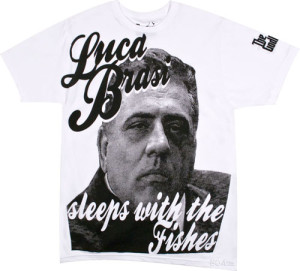The Economist writes that gangsters used to send their enemies to sleep with the fishes. Today they are more likely to mislabel the fishes and sell them at a profit. Organized criminals who have long trafficked drugs are diversifying into humdrum areas of commerce—particularly food, booze and cheap consumer goods.
The horsemeat scandal last year drew attention to food fraud. Such scams are not unusual. Some 22 tonnes of long-grain rice being sold as  pricier Basmati were recently seized as part of an operation led by Interpol and Europol, respectively the world’s and Europe’s police agencies. In Worthing, in Sussex, trading standards officers spotted nearly 2,500 jars of honey that contained nothing but sugar syrup. Another scam, involving substituting a cheap species of white fish for a pricey one, is hard to spot once the fish has been flaked, breaded and fried. Others dilute expensive olive oil with low-cost soyabean oil. Criminals even sell counterfeit washing powder.
pricier Basmati were recently seized as part of an operation led by Interpol and Europol, respectively the world’s and Europe’s police agencies. In Worthing, in Sussex, trading standards officers spotted nearly 2,500 jars of honey that contained nothing but sugar syrup. Another scam, involving substituting a cheap species of white fish for a pricey one, is hard to spot once the fish has been flaked, breaded and fried. Others dilute expensive olive oil with low-cost soyabean oil. Criminals even sell counterfeit washing powder.
This brand of crime is growing. In 2007 the Food Standards Agency set up a food-fraud database. That year it received 49 reports of food fraud. In 2013 it received 1,538. The scale and organization required to produce fake food points to criminal groups. And this is no flash in the pan, reckons Huw Watkins of the Intellectual Property Office. Gangs are investing heavily in the machinery, raw materials and labor necessary to make fake food products.
Some crooks who once focused on drugs have switched to food, says Chris Vansteenkiste of Europol, partly thanks to the falling profitability of the former.
